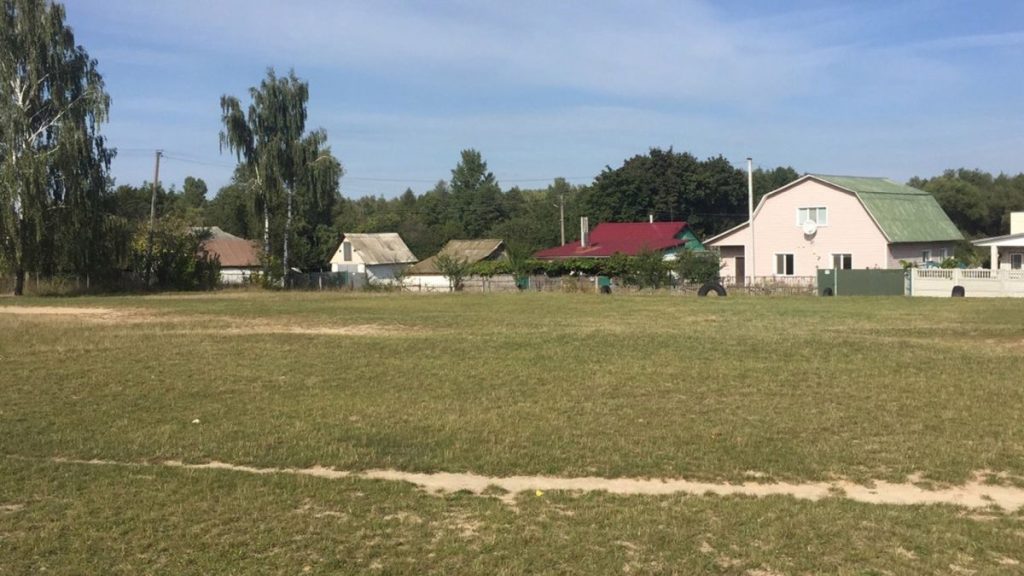Analysis: Tato and Mama gave me a home in Ukraine. Now they’re under attack

Five years ago, they welcomed me into their home like a daughter — now they’re living under Russian bombardment, the sound of shelling punctuating every precious call.Tato, a white-haired man in his early 60s, tells me on the phone he can see explosions from the front yard of their home in a small village outside the northern city of Chernihiv. Mama, who’s a few years younger, sobs as she tells me they have no water, no power, and no safe way to leave. Their only form of transportation is a rundown Soviet-era car that’s so rusted you can see the ground rush by through a hole in the floor. And Mama’s 91-year-old mother, Babusya, is so frail she rarely leaves her bed. Due to safety concerns, CNN is not publishing their photos or full names.Ukrainians in some other cities have been been able to flee their homes, escaping the Russian attacks via temporary evacuation corridors, but no clear route exists out of Chernihiv or their village. “The enemy continues to launch air- and missile strikes on the city of Chernihiv,” Vyacheslav Chaus, the head of the regional state administration said on Saturday. “Civilians are dying, many people are being injured. The enemy shells civilian infrastructure, where there is no military,” he said. Before the war, we shared regular texts about pet dogs, and what food we were eating — they were fascinated by my life outside Ukraine.Then, just over a week ago, Tato sent me a photo of black smoke billowing into the air from explosions near his village.His text: “If we survive, maybe we’ll see each other.”A simple life Ukraine is not the same country I lived in for two years from 2017 to 2019 as a Peace Corps volunteer. Then, conversations with my host family used to be long, sitting at the kitchen table with tea, sharing simple stories about the season’s harvest or my work with children. Tato and Mama don’t have children of their own. Knowing I was Japanese-American, Tato learned Japanese words like “ohayo” which means “good morning.” At night, we danced to Ukrainian and American 80s music — they thought it would make their house feel more like home.The first night at their house, I felt a little awkward, so Tato barged into my room with an ABBA CD and motioned as if to dance. I pulled out my phone and played the music, one song after another. That night we used up a month’s worth of phone data.
Mayumi Maruyama/CNN Tato and Mama’s life was so different to my own. In Los Angeles, the city where I’d spent much of my adult life, I fell asleep to loud bar music and honking cars. In Ukraine, nights were so quiet I could only hear the sound of their dog’s footsteps. Tato and Mama grew their own vegetables and raised their own chickens for food. During the spring and summer, they sold the flowers they grew in their backyard at the market in Chernihiv.Every day I used to take the bumpy 20-minute bus ride from my host parents’ house to the city, where I’d work in the local cafe. It had a strong Wi-Fi signal, good coffee and thick slices of Ukrainian Kyivski tort, a layered pastry with cream and hazelnuts.After I returned to America in 2019, Tato, Mama and me would send each other video and text messages, and Facetime often.During the first week of the war, they suggested they were carrying on with their normal routine — waking at 6 a.m., feeding the chickens, and going to their part-time jobs. Babusya was still watching her favorite TV shows, even as bombs dropped on other cities.But on March 2, their tone changed. Tato sent me a message: “Mama, Babusya and I only eat 150g each” — about the weight of an average potato.In the days since, it’s become harder to reach them. My calls aren’t answered. Text messages don’t go through. All I can do is watch the destruction of their country unfold from afar. Russian forces now surround Chernihiv and video reveals the scale of the devastation.According to video posted to Telegram, a large crater lies between the local library and the city’s football stadium, where Tato used to train for FC Desna Chernihiv as a much younger man.In March, temperatures hover around freezing, but now the city has “no electricity, almost no water, gas and heat,” Chaus, the regional administrator said. Attempts to reconnect the power failed when Russian forces shelled the electricity network again, he added.When I lived in their village, Tato and Mama were very protective of me, especially my host dad. He had me wear a neon orange vest when we went mushroom picking, so he could always find me. Now I feel helpless to protect them. I stare at my phone. Text messages I sent to Tato last Sunday remain unread. I send the number for the Red Cross anyway, in case it somehow gets through. My last conversation with Mama on Monday was only second time I heard her cry. The first was when it was time for me to leave the village to go to Kyiv, a city steeped in history now under fire by Russian troops, just 9 miles (15 kilometers) from the city center.
Mayumi Maruyama/CNN “There is a shooting, we have to shelter…I love you,” Mama said, from the home where in peaceful times they would be beginning to plant the seasons’ harvest. “I love you, too.”




